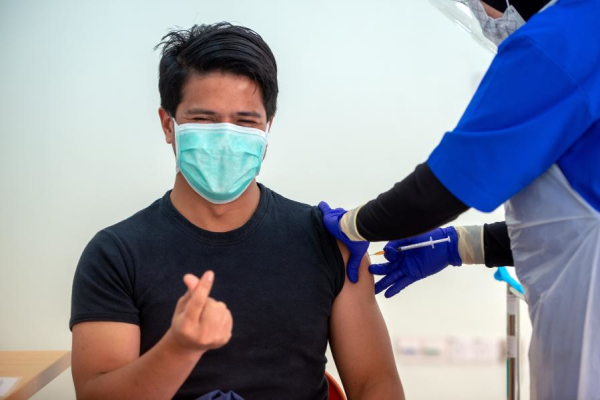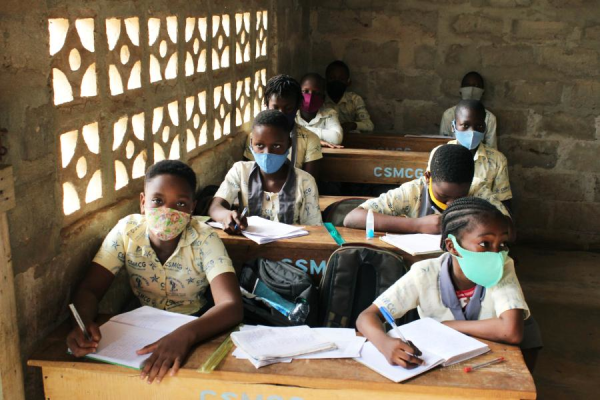
A man looks at giant teddy bears outside a restaurant in Paris, France, March 3, 2021. (Xinhua/Gao Jing)
Has the COVID-19 pandemic come to a "turning point" with steadily decreasing new infections and deaths worldwide?
With the COVID-19 vaccinations underway amid dwindling daily counts of new cases and deaths worldwide, the epidemic has shown a downward trend.
But experts around the world pointed out that it is still too early to talk about when the pandemic will end and vigilance is still needed as the "turning point" has yet to come.
"It is premature to think that we're going to finish with this virus by the end of the year," Executive Director of the World Health Organization (WHO) Health Emergencies Program Mike Ryan said at a regular press conference Monday.
The WHO is now focusing on keeping COVID-19 transmission as low as possible, which will help prevent the emergence of variants and reduce the number of infections and hospitalizations, Ryan said.
Noting that countries and regions around the world are ramping up vaccine rollout, Stanley Perlman, professor of microbiology and immunology at the University of Iowa, told Xinhua that only when people across the world get immunized will the global pandemic be approaching a "turning point."

A medical worker injects a dose of COVID-19 vaccine for a frontline health worker at a university hospital in Sungai Buloh near Kuala Lumpur, Malaysia, March 3, 2021. (Photo by Chong Voon Chung/Xinhua)
"Otherwise, the virus will always be lurking and potentially mutating," said Perlman.
"It's a great moment of optimism, but it's also very fragile in a lot of ways," said Wafaa El-Sadr, an epidemiologist at Columbia University's Mailman School of Public Health. "We see the light at the end of the tunnel, but it's still a long tunnel."
Ryan said the world will accelerate towards controlling the pandemic "if the vaccines begin to impact not only on death and hospitalization but have a significant impact on transmission dynamics and transmission risk."
His remarks were echoed by Perlman, who said that "people will be cautious for a year or two even assuming that herd immunity is reached."
After people see some semblance of normality, they should be alert to the re-emergence of the virus, the professor said, adding "we need better surveillance and intergovernmental trust and communication" to respond to challenges jointly.
Anthony Fauci, top U.S. infectious disease expert, said on CBS's "Face the Nation" that though the daily COVID-19 cases in the United States have dropped to 70,000 from the previous 300,000, the baseline level of cases is still very high.
The level needs to fall further before the country can confidently resume normal activities, even as the vaccine rollout accelerates, he said.

Students wearing face masks have a class in a private middle school amid the COVID-19 pandemic in Tori of Ouidah, Benin, March 1, 2021. (Photo by Seraphin Zounyekpe/Xinhua)
Fauci noted that in past periods of the pandemic, "when we started to pull back prematurely, we saw the rebound. We definitely don't want that to happen."
According to data released by the WHO Tuesday, more than 2.6 million new COVID-19 cases were confirmed last week, a 7-percent increase compared to the previous week, following six consecutive weeks of declines.
"We are seeing encouraging trends in terms of reduction in incidence, but last week ... tells us that this virus will rebound," said Maria van Kerkhove, technical lead on COVID-19 response at the WHO Health Emergencies Program.
"We need to have a stern warning for all of us that this virus will rebound if we let it," she said.
Chandra Kanneganti, national chairman of the British International Doctors Association, said, "it's not the time to lower our guard. It will take a considerable amount of time, before a large proportion of the population is vaccinated to prevent its rapid spread."
It is crucial to "continue with all the necessary precautions that the various medical agencies have prescribed," said Kanneganti.




